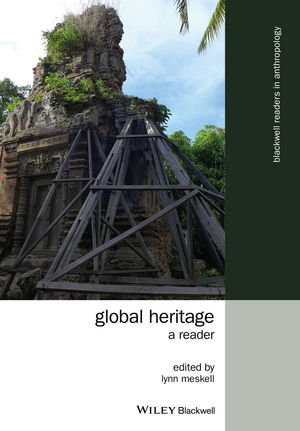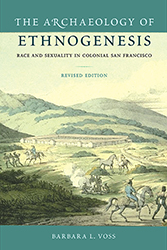Archaeology Major
Bachelor of Arts in Archaeology
To declare a major in Archaeology, students should apply for the B.A. in Archaeology on Axess and contact the student services specialist, who provides an application form, answers initial questions, and helps the student choose a faculty adviser. All majors must complete 65 units with an overall minimum grade of 'C', which must form a coherent program of study and be approved by the student's faculty adviser and the program director. Students are encouraged to declare by the beginning of their junior year.
Students who plan to pursue graduate work in Archaeology should be aware of the admission requirements of the particular departments to which they intend to apply. These vary greatly. Early planning is advisable to guarantee completion of major and graduate school requirements.
Degree Requirements
The B.A. in Archaeology requires a minimum of 65 units in the major, with an overall minimum grade of 'C', and no more than 10 units may be taken for pass credit. The major requirements are divided among five components. A course may only be used once to fulfill a component.
Core Courses
ARCHLGY 1 Introduction to Prehistoric Archeology is recommended as a first course. Many upper-level courses in Archaeology require this course as a prerequisite. Students should normally take the capstone course in their final year of course work in the major.Units 20 units must be taken for a letter grade (minimum passing grade of 'B') ARCHLGY 1 Introduction to Prehistoric Archeology (Gateway) 5 ARCHLGY 102 Archaeological Methods (Intermediate) 5 ARCHLGY 103 History of Archaeological Thought (Intermediate) 5 ARCHLGY 107A Archaeology as a Profession (Capstone) 5 Total Units 20 Analytical Methods and Computing (5 units)
Quantitative skills and computing ability are indispensable to archaeologists. It is recommended that students take one of the following:
Units Select one of the following: 5 Digital Methods in Archaeology (recommended) Introduction to Statistical Methods: Precalculus Introduction to Statistical Methods (Postcalculus) for Social Scientists Archaeological Skills (10 units)
Archaeological skills include archaeological formation processes, botanical analysis, cartography, ceramic analysis, dating methods, faunal analysis, geographic information systems, geology, geophysics, genetics, osteology, remote sensing, soil chemistry, and statistics. With the approval of the instructor and Archaeology director, undergraduates may fulfill part of this requirement from graduate-level courses (typically courses with catalog numbers of 200 or higher).
Units ARCHLGY 119 Zooarchaeology: An Introduction to Faunal Remains 5 ARCHLGY 124 Archaeology of Food: production, consumption and ritual 3-5 ANTHRO 103A Human Osteoarchaeology 5 ANTHRO 175 Human Skeletal Anatomy 5 Theory (at least 10 units)
Topics include archaeological, art-historical, sociocultural, historical, and material culture theory. With the approval of the instructor, undergraduates may fulfill part of this requirement from graduate-level courses (typically courses with catalog numbers of 200 or higher).
Units ARCHLGY 151 Ten Things: An Archaeology of Design 3 ANTRHO 90B Theory of Cultural and Social Anthropology 5 ANTHRO 117 Thinking Through Animals 5 ANTHRO 125 Language and the Environment 4-5 ANTHRO 134 Object Lessons 5 ANTHRO 147 Nature, Culture, Heritage 5 Electives (20 units)
Select from any of the courses listed below. Courses are arranged around a regional or thematic focus, and therefore, may appear more than once. Students have the option of taking courses around a theme or concentration, and are encouraged to do so by consulting with their faculty adviser(s) to design a course plan. Courses other than those on this list can be used to fulfill this requirement with prior approval of the student's faculty adviser and program director. With the approval of instructor, undergraduates may fulfill part of this requirement from graduate-level courses, typically courses numbered 200 or higher.
World Archaeology
Mediterranean
Units ARCHLGY 118 Engineering the Roman Empire 4-5 ARCHLGY 145 Sailing the Wine-Dark Sea: Maritime Archaeology of the Ancient Mediterranean 3 CLASSICS 51 Introduction to Greek Archaeology 3-5 CLASSICS 52 Introduction to Roman Archaeology 3-5 CLASSICS 169 Archaeology of Britannia 3-4 Americas
Units The Archaeology of Home 3-5 Incas and their Ancestors: Peruvian Archaeology 3-5 The Big Shift 4 Asia
Units ARCHLGY 111 Emergence of Chinese Civilization from Caves to Palaces 3-4 ARCHLGY 135 Constructing National History in East Asian Archaeology 3-5 Heritage
Units ARCHLGY 13 Islamic Routes: Archaeology and Heritage of Muslim Societies 3-5 ARCHLGY 135 Constructing National History in East Asian Archaeology 3-5 ARCHLGY 143 Classical Archaeology Today: Ethical Issues of Excavation, Ownership, and Display 3 ARCHLGY 112 Public Archaeology: Market Street Chinatown Archaeology Project 4-5 ARCHLGY 112B Advanced Study in Public Archaeology 2-5 ANTHRO 147 Nature, Culture, Heritage 5 THINK 22 Who Owns the Past? Archaeology, Heritage and Global Conflicts 4 Urbanism and Cities
Units ANTHRO 112 Public Archaeology: Market Street Chinatown Archaeology Project 5 ANTHRO 112B Advanced Study in Public Archaeology 2-5 Archaeological Fieldwork
Students must take part in a month-long Stanford Archaeology Center field project directed by a Stanford faculty member, and enroll in any coursework that is required for participation in the field project. Projects are typically offered during summer months and funding may be provided. Field schools have been located in: Turkey, Peru, China, Mauritius and Italy.Collateral Language Requirement
All Archaeology majors must demonstrate competence in a foreign language beyond the first-year level. Students can meet this requirement by completing a course beyond the first-year level with a grade of 'B' or better, and are encouraged to choose a language that has relevance to their archaeological region or topic of interest. Students may petition to take an introductory-level course in a second language to fulfill this requirement by demonstrating the connection between the language(s) and their research interest(s).Research and Independent Study
Students may count up to 5 units of research and independent study toward the Archaeology major:Units including but not limited to: ARCHLGY 190 Archaeology Directed Reading/Independent Study 1-5 ARCHLGY 195 Independent Study/Research 1-5 ARCHLGY 199 Honors Independent Study 5
Honors Program
The honors program in Archaeology gives qualified majors the chance to work closely with faculty on an individual research project culminating in an honors thesis. Students may begin honors research from a number of starting points, including topics introduced in the core or upper-division courses, independent interests, research on artifacts in Stanford's collections, or fieldwork experiences.
Interested Archaeology majors of junior standing may apply for admission by submitting an honors application form, including a 4-5 page statement of the project, a transcript, and a letter of recommendation from the faculty member supervising the honors thesis to the student services specialist, no later than the end of the fourth week of the Spring Quarter. Archaeology majors are eligible to apply for honors candidacy. The thesis is due in early May of the senior year and is read by the candidate's adviser and a second reader appointed by the undergraduate committee.
Overseas Studies Courses in Archaeology
For course descriptions and additional offerings, see the listings in the Stanford Bulletin's ExploreCoursesweb site or the Bing Overseas Studies web site. Students should consult their department or program's student services office for applicability of Overseas Studies courses to a major or minor program.



